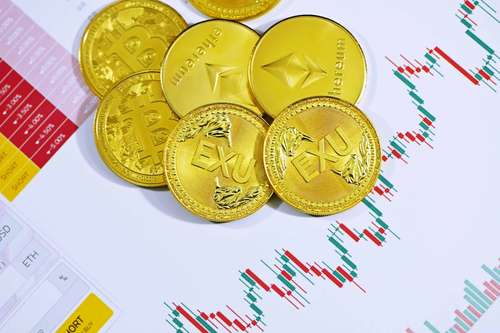As a new week emerges for crypto lovers, let's examine the most recent developments in the cryptocurrency industry.
From big players rejoining the market to important updates on blockchain platforms, here are the top stories making waves in crypto.
Stripe Gets Back into Crypto Payments, Focusing on Stablecoins
Stripe, a major player in processing payments, has made a noteworthy announcement by rejoining the crypto scene and showing renewed interest in digital assets.
They're particularly focusing on stablecoins, like USDC (USD Coin), aiming to let merchants accept payments in cryptocurrencies like Solana, Ethereum, and Polygon starting this summer.
Stripe's recent move to reintroduce cryptocurrency payments reflects the company's evolving stance on digital currencies.
Although it ceased accepting Bitcoin payments in 2018 citing worries about volatility and excessive expenses, Stripe has continued to stay engaged with the crypto sphere by backing activities such as NFT transactions and Web3 ventures in 2022.
By stating "Crypto is back" in a tweet, Collison confirms that Stripe is confident in the ability of digital currencies to revolutionize online transactions.
Crypto is back. @Stripe will start supporting global stablecoin payments this summer. Transactions instantly settle on-chain and automatically convert to fiat. Join the waitlist https://t.co/hws2OsU3Id and watch the demo (h/t @Solana) from Sessions. pic.twitter.com/zGKYW2FM6i
— John Collison (@collision) April 25, 2024
USDC is a stablecoin that is tied to the value of the U.S. dollar, and it has a market value of $33.45 billion. It is the second biggest stablecoin in the world after Tether's USDT.
USDC's stable nature and ease of trade make it a less risky option for merchants than traditional cryptocurrencies. This aligns well with Stripe's objective of ensuring secure and seamless payment transactions.
Stripe's move to support stablecoin payments expands their payment options and reflects a bigger trend toward digital assets becoming more widely accepted.
IMF Report Spotlights Bitcoin's Role in Global Finance
The International Monetary Fund (IMF) released a detailed report called 'A Primer on Bitcoin Cross-Border Flows,' highlighting Bitcoin's growing importance in global finance. This comes when cryptocurrencies are becoming more relevant in the wider economy.
According to the IMF, Bitcoin could help countries facing tough economic times become more stable and grow.
The report admits Bitcoin's increasing utility in finance, suggesting it could be a key part of countries' efforts to diversify their economies and become more resilient.
As digital changes sweep through finance, Bitcoin has become a big deal, with countries worldwide starting to use cryptocurrencies in their economies.
Bitcoin has become more important lately, especially with tensions between countries and economic uncertainty rising.
As traditional finance systems struggle, assets like Bitcoin and gold are getting more attention as alternatives.
The IMF's report shows that Bitcoin could help countries deal with financial problems by giving them a way to manage tough economic times.
The report examines Bitcoin's usage across borders and highlights its distinct behavior from conventional money transfers. Bitcoin's cross-border transactions exhibit resilience and respond uniquely to shifts in the market and economy.
Additionally, the report discusses the influence of Bitcoin transactions on the GDPs of different countries, demonstrating how it benefits regions that have limited access to traditional money transfers. This indicates the potential for Bitcoin to foster economic growth and promote financial inclusion globally.
Solana Prepares for Major Network Update
Solana, a top blockchain network known for being fast and able to handle large transactions, is preparing for a big update on May 27. This version v1.18 update is meant to fix issues with the network getting too crowded, especially with meme coin transactions driven by bots.
This update is a big deal for Solana as they try to improve their network's structure and ability to handle more users.
Too many validators are using the network, which can make transactions less reliable and slow down the network. Solana's team has been working hard to make changes to fix these problems.
Solana's v1.18 version focuses on reinforcing the network, facilitating enhanced scalability and quicker transactions. This network upgrade aims to improve the user experience and provide hassle-free transactions throughout the Solana ecosystem.
Solana's team has tested it extensively and got validator feedback to ensure the update goes well. Validators are essential for ensuring the network's safety and transaction validity, so their input helps ensure the new features work well.
Aside from its upcoming major update, Solana has been taking additional steps to address network congestion. These measures include releasing version 1.17.31, which aims to alleviate congestion.
Like many other cryptocurrencies, Solana has experienced significant market fluctuations despite these technical improvements.




